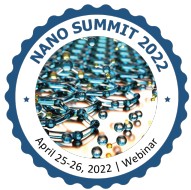
Raman Singh
Monash University, Australia
Title: Graphene Coatings - A Disruptive Approach for Mitigation of Corrosion
Biography
Biography: Raman Singh
Abstract
Corrosion and its mitigation costs dearly (anydeveloped economy loses 3-4% of GDP dueto corrosion, which translates to ~$250b toannual loss USA). In spite of traditionalapproaches of corrosion mitigation (e.g., useof corrosion resistance alloys such asstainless steels and coatings), loss ofinfrastructure due to corrosion continues tobe a vexing problem. So, it is technologicallyas well as commercially attractive to exploredisruptive approaches for durablecorrosionresistance.
Graphene has triggered unprecedentedresearch excitement for its exceptionalcharacteristics. The most relevant propertiesof graphene as corrosion resistance barrierare its remarkable chemicalinertness,impermeability and toughness, i.e., the requirements of an ideal surface barriercoating for corrosion resistance. However,the extent of corrosion resistance has beenfound to vary considerably in differentstudies.
The author’s group hasdemonstrated an ultra-thin graphene coatingto improve corrosion resistance of copper bytwo orders of magnitude in an aggressivechloride solution (i.e., similar to sea-water). Incontrast, other reports suggest the graphenecoating to actually enhance corrosion rate ofcopper, particularly during extendedexposures. Authors group has investigatedthe reasons for such contrast in corrosionresistance due to graphene coating asreported by different researchers. On thebasis of the findings, author’s group hassucceeded in demonstration of durablecorrosion resistance as result of developmentof suitable graphene coating. Thepresentation will also assess the challengesin developing corrosion resistant graphenecoating on most common engineering alloys,such as mild steel, and presents resultsdemonstrating circumvention of thesechallenges

